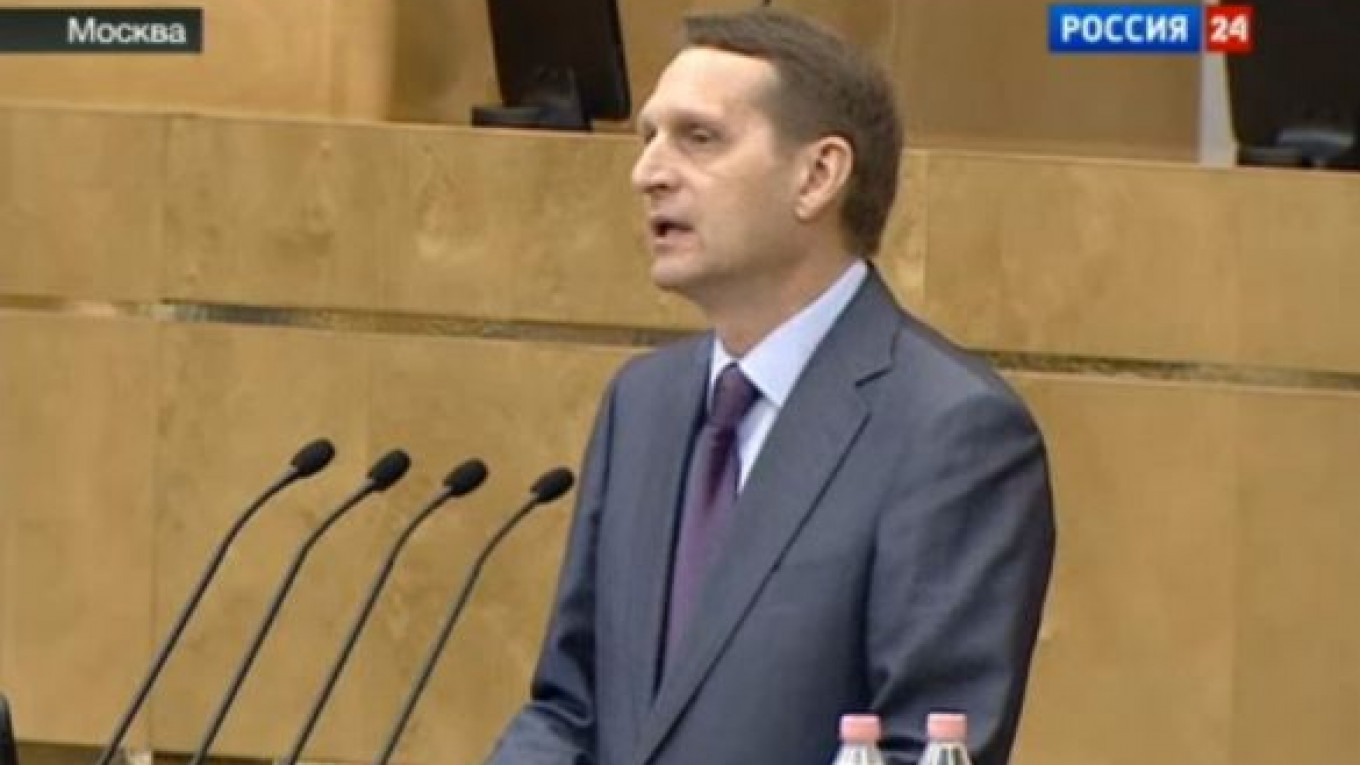The State Duma convened for the first time since its summer recess this Tuesday for what Duma Speaker Sergei Naryshkin promised would be a season of "incisive political debates."
The subject of U.S. and Russian stances on Syria was raised immediately, with Naryshkin criticizing the U.S. Congress's refusal to meet with Russian lawmakers in his opening address.
After praising Russia's proposal to defer military action if the Syrian government put its chemical weapons under international control, Naryshkin called on the relevant committee to draft a special State Duma declaration on the subject.
In another development, a government-proposed bill to reform the Russian Academy of Sciences will face its third and final reading next week after amendments proposed during the summer have been considered, Vedomosti reported.
The proposal drew fierce criticism from academics and opposition politicians but was pushed ahead in July by President Vladimir Putin and is likely to be instituted in some form this season.
A draft of a bill extending bitterly contested anti-piracy legislation is also on the agenda. While the previous bill detailed the mechanisms by which copyright holders could have their content removed from unauthorized online sources, the new measures would censure citizens, officials and companies for refusing to delete pirated content with fines of up to a million rubles ($30,000).
Fundamental issues including a system for amending legislation, for electing members of the State Duma, and the revision of articles of the Russian Constitution will also be addressed, Naryshkin said.
The Duma Speaker noted that society's interest in the government's adherence to constitutional law and to the division of power is growing, which "once again underlines the necessity of increasing the professionalism of our work."
A Message from The Moscow Times:
Dear readers,
We are facing unprecedented challenges. Russia's Prosecutor General's Office has designated The Moscow Times as an "undesirable" organization, criminalizing our work and putting our staff at risk of prosecution. This follows our earlier unjust labeling as a "foreign agent."
These actions are direct attempts to silence independent journalism in Russia. The authorities claim our work "discredits the decisions of the Russian leadership." We see things differently: we strive to provide accurate, unbiased reporting on Russia.
We, the journalists of The Moscow Times, refuse to be silenced. But to continue our work, we need your help.
Your support, no matter how small, makes a world of difference. If you can, please support us monthly starting from just $2. It's quick to set up, and every contribution makes a significant impact.
By supporting The Moscow Times, you're defending open, independent journalism in the face of repression. Thank you for standing with us.
Remind me later.






